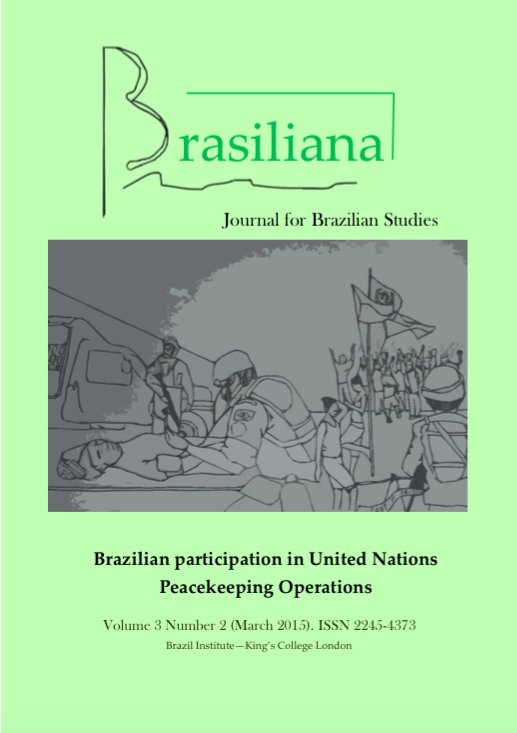Twenty Years Wandering (But Not in the Desert): Brazil’s 1967-1989 absence from UN peacekeeping
Main Article Content
Abstract
Since the early 1990s, Brazilian officials have often underlined the country’s role as a traditional contributor of troops to peacekeeping operations, beginning with participation in UNEF I, in 1957. However, for the two decades from 1967 to 1989, Brazil did not take part in peacekeeping – a particularly puzzling absence given that this was a period of increased Brazilian activism at the UN, including in international security issues. This article suggests that one of the main reasons for Brazil’s withdrawal was concern regarding the excessive role of the great powers in controlling these operations. From 1967 to 1977, Brazil participated in the attempt to stop the Security Council from consolidating its control over these operations, seeking thereby to reduce their vulnerability to great power manipulation. In 1977, it desisted from this endeavor, and returned to peacekeeping only in 1989, by which time Brazil, the world, and peacekeeping had all changed significantly.
Article Details
![]()
Articles published in Brasiliana are licensed under a Creative Commons Attribution-NonCommercial-NoDerivs 3.0 Unported License.
When publishing open access, the author signs an author publishing agreement in which they retain copyright and give Brasiliana the right to publish the article. Our Open Access publications are distributed under the terms of the Creative Commons Attribution 4.0 International License, which permits unrestricted use, distribution, and reproduction in any medium, provided the original work is properly cited.

